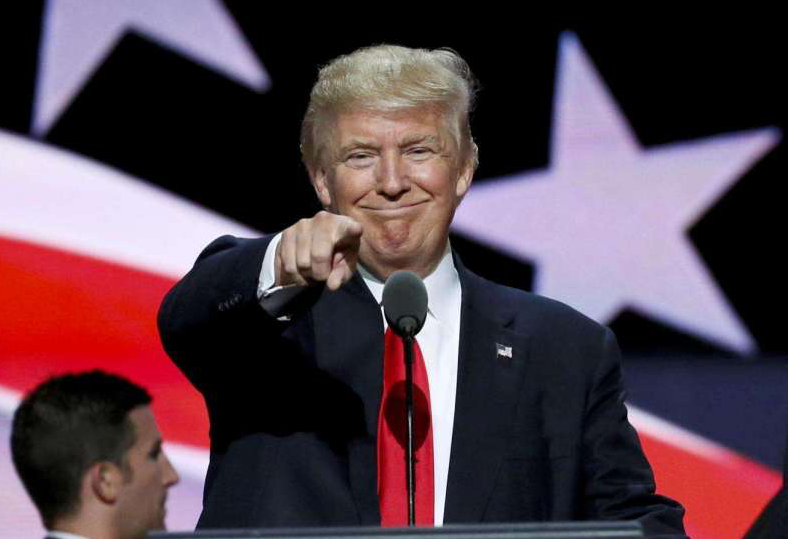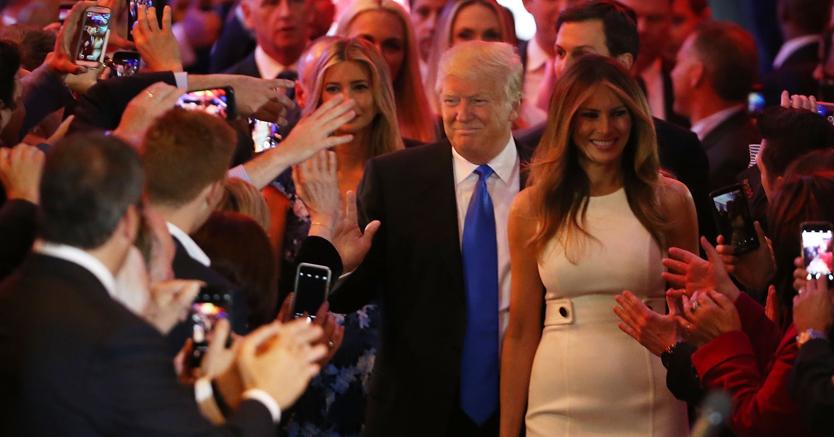Who’s afraid of Donald Trump
Analysis by Paolo G. Parovel
There are two ways to interpret the election of Donald J. Trump as the 45th President of the United States of America, and to predict its consequences.
The first interpretation is the superficial one of those who panic because they allowed the arguments and the overtones with which Trump was able to gather and to unite all possible forms of dissatisfaction against the “liberal” regime of the Democratic Party, and to overthrow it resoundingly, winning also the House and the Senate.
The other interpretation is the analytic one of those who observe that Trump is not a fool or a fanatic, but an educated and skilled entrepreneur, including when it comes to choosing his collaborators, and who, after the electoral victory, has immediately dismissed the abusive language of the electoral campaign, and started to express himself in a measured and equilibrated manner, as proper for a statesman.
As necessary to govern the most powerful and influent State of the World, which does also have a political-economic-military mass that is enough to grant the stability of the route, and a system of domestic political and institutional checks and balances that can avoid, stop, or prevent the mistakes or excesses of any President.
In facts, the non-declared support of the intelligence apparatus and of the Army proved decisive for Trump’s victory, because they did already know since long, and in detail, how and why certain careless actions of Hillary Clinton were a serious and actual danger for national security and for global balances.
But the vote of African-Americans and Hispanics, of workers and other groups of simple citizens, men and women, proved decisive as well, because they compared their concrete economic and social struggles with the results of the snobby liberalism of the Democrats, and decided to go for a change.
Because the basic rules of the economy and of the society cannot be invented, and cannot be substituted with slogans and Utopias. To reduce misery, it is necessary distributing wealth, but to distribute wealth it is necessary producing it, and to do so it is necessary promoting work, not suffocating it with excessive bureaucratic and fiscal burdens.
It might seem a paradox, but the fact that isolated extremist groups contributed to the election of Trump does not increase their social dangerousness. Instead, it reduces it because by voting they integrate in the democratic system that otherwise they would want to overthrow.
The Juncker paradox and the “liberal” network
Another apparent paradox is that, while after the election Donald Trump adopted the responsible manners of a statesman, the President of the European Commission, Jean-Claude Juncker, left these manner to release extremely violent declarations against the new president-elect of the United States of America.
Also, Juncker’s declarations justify and incite the intellectuals, the media, and the European citizens who vent their old and new anti-American prejudices by protesting against the democratic election of Donald Trump, paradoxically, in the name of democracy.
Both paradoxes are explained with the fact that the overwhelming and unpredictable victory of the Republicans in the U.S. clears away an extended network of political, economic, cultural, and business relations that was built by connecting to the U.S. Democrats more or less presentable “liberal” friends: parties, political leaders, financial lobby groups.
A network of international contacts and interests with unbearable human and financial costs, because when it comes to economic, social, and environmental problems it produces more ideology than factual results, while on the strategic and military level it is incapable to prevent the crises, as it is incapable of face and to solve them.
The disastrous example of Italy
A European example of this is the disaster of Italy, ruled by Matteo Renzi and by his Democratic Party, (the Partito Democratico – PD): a “liberal” mixture of radical-chic ex-communists, ex socialists, and ex left-wing Christian-Democrats, which worsens the economic crisis of the Country and attempts to remain into power by changing the democratic rules of the Italian Constitution.
The Italian PD Government is unreliable also as strategic ally in the Middle East, where it carries on ambiguous operations (LINK) and in the Balkans, where it continues to fuel nationalistic propagandas against Slovenia and Croatia, as well as attempting to suffocate the present-day Free Territory of Trieste and its international Free Port (LINK).
So, it is possible that starting with the upcoming January 20th, the U.S. administration of Donald Trump focuses more also on those problems, and with more energy than the previous Obama administration.
© 15 Novembre 2016

















